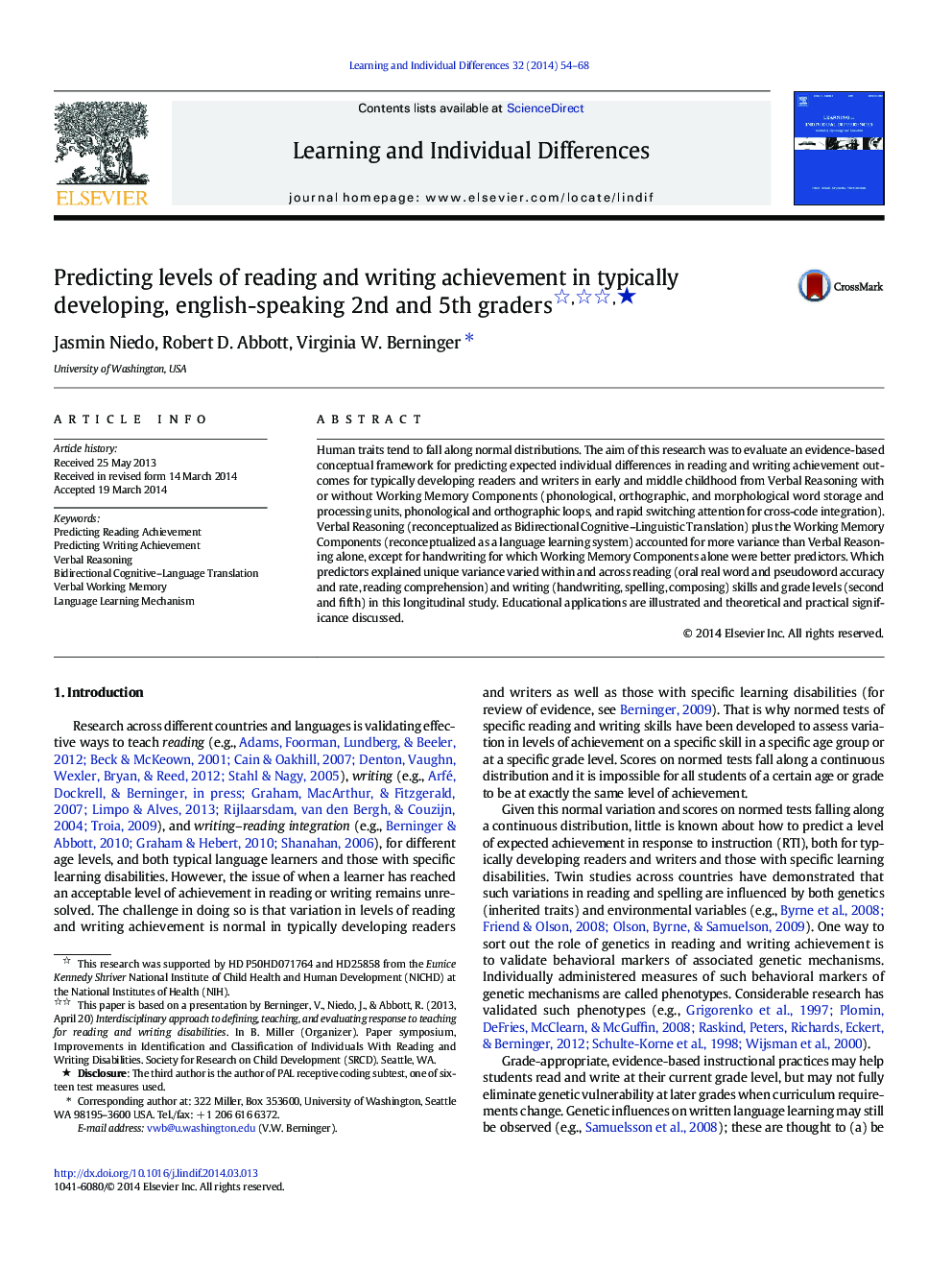| Article ID | Journal | Published Year | Pages | File Type |
|---|---|---|---|---|
| 6845102 | Learning and Individual Differences | 2014 | 15 Pages |
Abstract
Human traits tend to fall along normal distributions. The aim of this research was to evaluate an evidence-based conceptual framework for predicting expected individual differences in reading and writing achievement outcomes for typically developing readers and writers in early and middle childhood from Verbal Reasoning with or without Working Memory Components (phonological, orthographic, and morphological word storage and processing units, phonological and orthographic loops, and rapid switching attention for cross-code integration). Verbal Reasoning (reconceptualized as Bidirectional Cognitive-Linguistic Translation) plus the Working Memory Components (reconceptualized as a language learning system) accounted for more variance than Verbal Reasoning alone, except for handwriting for which Working Memory Components alone were better predictors. Which predictors explained unique variance varied within and across reading (oral real word and pseudoword accuracy and rate, reading comprehension) and writing (handwriting, spelling, composing) skills and grade levels (second and fifth) in this longitudinal study. Educational applications are illustrated and theoretical and practical significance discussed.
Related Topics
Social Sciences and Humanities
Psychology
Developmental and Educational Psychology
Authors
Jasmin Niedo, Robert D. Abbott, Virginia W. Berninger,
